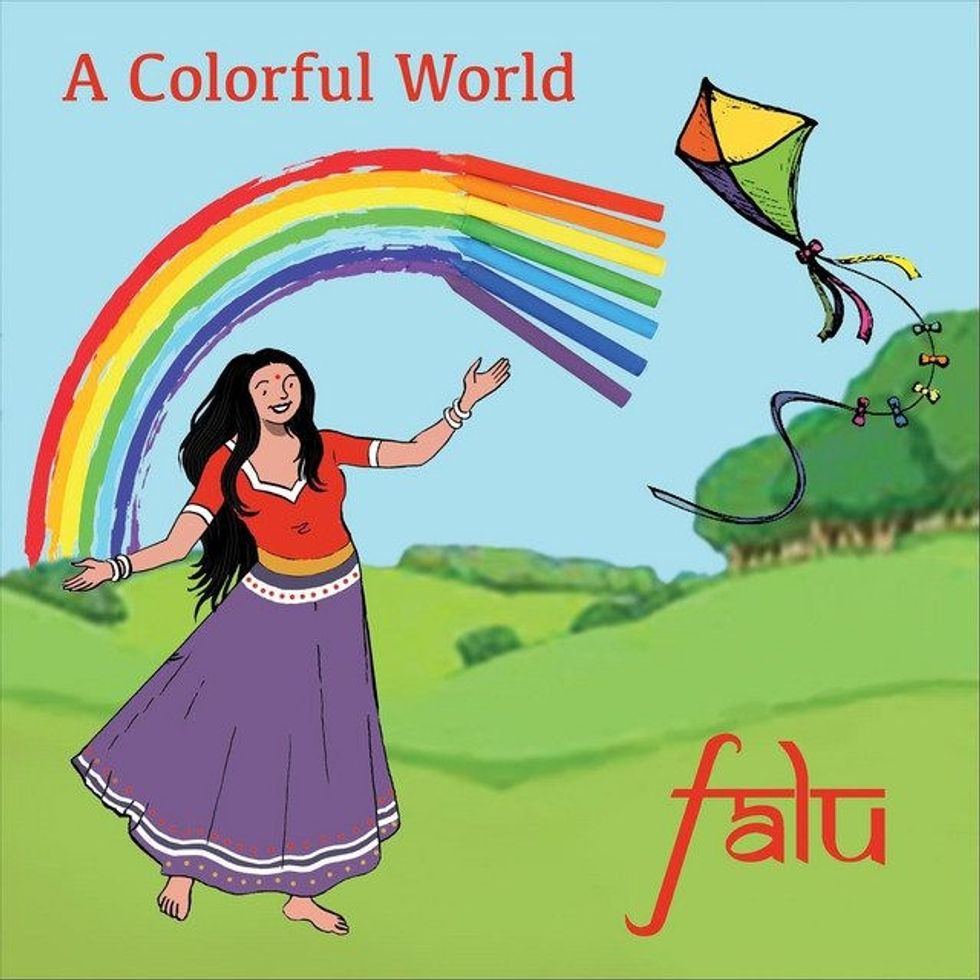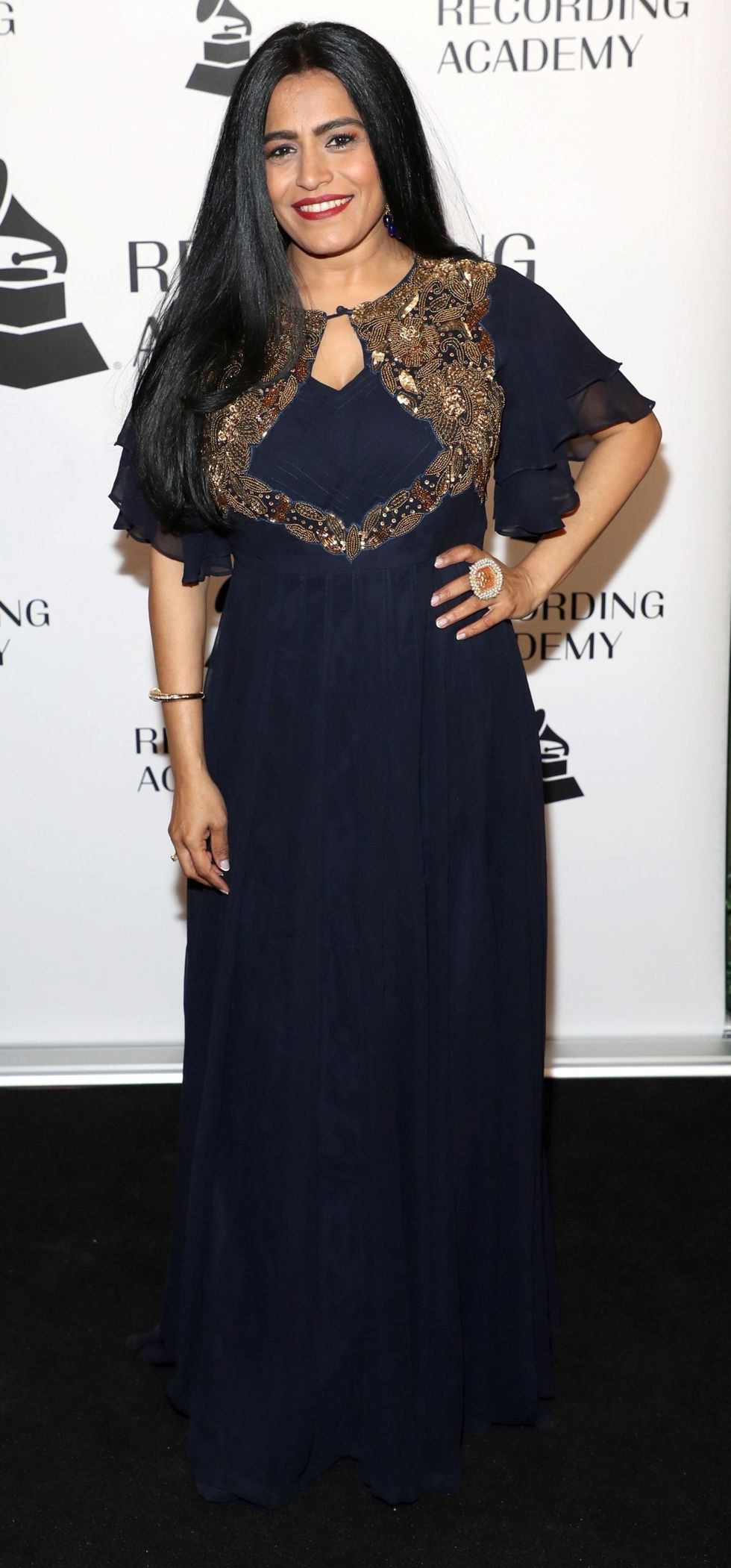A MARVELLOUS musical achievement of 2022 has been Falguni Shah magnificently winning a Grammy award for her second children’s album A Colorful World.
It follows on from her debut album Falu’s Bazaar getting a Grammy nomination in 2019 and adds to an impressive song-filled journey that took her from India to America. Known professionally as Falu, the singer, songwriter, and composer adds to a remarkable career that has seen her collaborate with huge international stars, deliver unforgettable live performances, and give back through music in a meaningful way.
Eastern Eye caught up with the game-changing singer to discuss her Grammy win, children’s music, interesting journey, and future hopes.
What first connected you to music?
My mother when I was three years old. She is also a singer and sang in All India radio and heard I had good musical pitch, so started my classical music training right there. And I still learn every opportunity I get.
You’ve worked with some incredible people. Is there one collaboration that really stands out?
The one with AR Rahman when he invited me to sing with him at the 100 Time gala, where he was the Time Person Of The Year. It was so magical just being in one room with him. I consider him the legend. He is somebody I’ve always looked up to. I went to see his movies, starting from Roja in theatres, and having an invitation, and blessing from him, just gave me so much confidence and the boost my career needed at that time. So, I will eternally be grateful to him.
What else do you remember about working with AR Rahman?
He was nominated and won for Jai Ho that year. We had to sing Jai Ho and a couple of other songs when we went to the White House, for President Obama and Mrs Obama. Singing with him just puts the entire music in a beautiful perspective of heavenly charisma. He just creates this ambiance of greatness, absolute pleasure, and it is such an easy way of working that anybody who works with him finds themselves to be super comfortable.
What led you towards recording children’s songs?
There’s a saying, ‘when a child is born, a mother is born’. When my son was born, he went to pre-school at four and started having identity questions, like ‘why am I brown’ or ‘why do I speak Gujarati at home’. So as a person who is deep rooted in her classical and traditional Indian culture, I always wanted to tell him that what you have and what you’ve inherited is gold, so don’t be afraid of speaking two languages and knowing two cultures, rather embrace it and be proud of it. But how do you tell a four-year-old about that? So, I started writing songs.
What kind of songs?
Songs telling him, you can say 1, 2, 3, 4, 5, but you can also say ek, do, teen, char, paanch. I gave him all these beautiful melodies and ideas, including names of spices, pots and pans in Hindi, and Gujarati. And that album got nominated because I think a lot of immigrant communities who struggle in America to keep their own culture and identity related with it. So that’s how I started to write for kids. I didn’t have a major plan, but I just happened to write for my own son.
That first album Falu’s Bazaar got recognition and a Grammy award nomination. What led towards your second children’s album?

When George Floyd was killed in America, my son came home with more questions, ‘do I need to be scared of my skin’, ‘am I safe’. Then I wrote A Colorful World with my team, who helped me do this vision, and we all wrote this together. We named it a colourful team because three of my producers are Latin, I’m Indian and the musicians are from all over the globe. I feel like we wanted a global representation for kids to tell them that whatever you are, you are loved and don’t have to be afraid of your differences. Instead embrace and accept each other with your differences. That’s how the album A Colorful World came about.
How did you feel when you got a Grammy nomination for your first album?
Oh my God, that was surreal and completely shocking because at that time, I wrote some songs for my child, never expecting that anybody else would even listen to them. It happened that the entire music community listened, loved it, and voted for it. It was such a beautiful shock because what I had to tell my son is a voice of a mother.
But was it an even bigger shock when you won a Grammy award for your second album?
Yes! They both are very big shocks, but sometimes life gives you this beautiful gift. The first nomination was a very happy shock, and the second nomination was also exciting. Just being nominated is so exciting because they listen to thousands of albums, and if out of them you’re picked in the top five, that is incredible, and then if you win that’s a crown. I think we are all so beyond thrilled and happy that India got a representation at such a global level, with such a beautiful subject of kid’s music. I’m writing heartfelt songs with equality, inclusiveness, and diversity in mind, and that was recognised for all children globally, not just my son. Now, it’s a global album for every kid to feel beautiful in, whatever skin they’re born in.

You got many congratulations from around the world for your Grammy win, from the public and music industry to Indian prime minister Narendra Modi, but which message meant most to you?
Mr Modi’s. It was the biggest honour because he is a busy man running our country and took time to tweet and bless me. That meant so much and if he’s listening, I wanted to tell him that I am so grateful, humbled, and honoured by your tweet and blessings. I promise you that I will continue to do the best as an Indian musician globally.
Do you now feel any pressure for your next album?
Yes, tremendously because once you are here, you have to keep that. Sometimes it’s easier to get to that destination, but then you have to keep that destination and float there. I have to figure out strategies of what would be the best steps next to not only stay in the position but also give back to my country, community and south Asians all over the world. To kids, adults, families, and everyone who listens to music, how can I give them the best of my best?
What you are doing is important, especially since there aren’t many south Asians doing kid’s music. Do you hope that now changes?
I hope some people pick up on this and write songs for kids because to me as a parent, ages one to six are formative years for a child, so everything you put in their bodies and minds is important. They are like sponges, so this is a golden opportunity for adults to give the child the best of the best. I think if you write age-appropriate songs with beautiful positive uplifting messages, they will become better future citizens. So, I would urge people in India to start writing songs for kids.
Finally, what does music mean to you today?
I think music is a powerhouse. It is something that we human beings have gotten as a gift from the almighty and haven’t used it to its full force or potential. Music can change lives, bring people out of depression, heal, and can give human beings mental peace and great upliftment, with beautiful notes, and give solid meaning and make their lives positive, so we are dealing here with a universal force, which can be used for human betterment.
















 Kelley Heyer, the choreographer behind the viral 'Apple' dance, is taking legal action against Roblox over its unauthorised use of her routine
Kelley Heyer, the choreographer behind the viral 'Apple' dance, is taking legal action against Roblox over its unauthorised use of her routine
 TikTok brings back Little Britain sketches once scrubbed from streaming platformsYoutube
TikTok brings back Little Britain sketches once scrubbed from streaming platformsYoutube 
